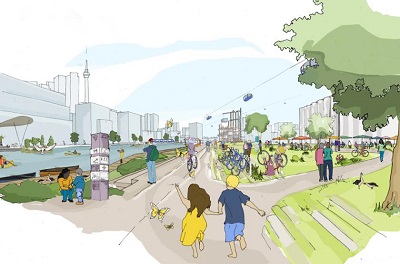 Friday, July 26, 2024
Friday, July 26, 2024  Friday, July 26, 2024
Friday, July 26, 2024 

Toronto’s proposed Quayside community was supposed to be a brag-worthy global showcase for what a smart city, “built from the internet up,” would look like. Instead, the joint partnership between Waterfront Toronto and U.S.-based Sidewalk Labs swiftly got caught in a 12-month, $50m negotiation and consultation process. Those involved in Quayside have been surprised by the concerns raised about the project and the resistance to it.
A public meeting in March — only their second in five months — failed to fill in basic details about the nature of the partnership, including how the for-profit Sidewalk Labs would actually generate income from the project. Perhaps most surprisingly, officials at the meeting revealed that they were still privately negotiating the most fundamental components of their partnership, namely what data would be collected, who would control and own this data, where it would be stored and how it would be used.
The two sides are also negotiating who will control the intellectual property (IP) that comes from a project that has been designed to produce lots of IP.
Click here to sign-up and receive the Weekly Round Up in your inbox every Saturday
These are not trivial issues. Smart-city infrastructure requires data collection — in fact, data is best conceived of as the fuel that powers smart cities. Without a constant stream of new data, smart cities cannot be as responsive in delivering public services.
In this respect, Quayside is not unique. Infrastructure projects will increasingly include data components, and municipalities and other levels of government — to say nothing of the citizens whose data these projects will collect — will face challenges similar to those currently encountered by Waterfront Toronto.
Government officials and our fellow citizens can learn a great deal about how not to approach such projects by examining Waterfront Toronto’s negotiations with Sidewalk Labs.
We suggest three key principles to consider for future smart city infrastructure projects:
Continue reading on CityMetric.com
